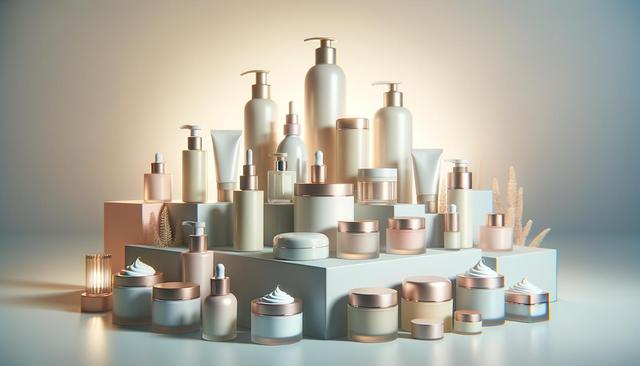Understanding the Role of Moisturizers in Anti-Aging
As the skin ages, its ability to retain moisture diminishes, leading to dryness, fine lines, and a loss of elasticity. Moisturizers help combat these changes by hydrating the skin and supporting its natural barrier function. The most effective moisturizers for anti-aging are those that not only hydrate but also include ingredients known for their skin-renewing properties, such as peptides, antioxidants, and hyaluronic acid. When applied consistently, these products can help soften the appearance of wrinkles and enhance skin texture over time.
It’s important to select a moisturizer that matches your skin type and addresses specific concerns like dullness, sagging, or age spots. Many formulations are designed to target multiple signs of aging simultaneously, which can be especially helpful for mature skin. Incorporating a moisturizer into both your morning and evening skincare routine can yield visible improvements with continued use.
Key Ingredients to Look For in Anti-Aging Moisturizers
Not all moisturizers are created equal, and the effectiveness of a product often depends on its ingredient list. Here are some commonly found components in high-performing anti-aging creams:
- Hyaluronic Acid: Known for its water-retaining properties, it plumps the skin and smooths fine lines.
- Peptides: These short chains of amino acids help stimulate collagen production for firmer skin.
- Retinoids: Derived from vitamin A, these accelerate cell turnover and reduce the appearance of wrinkles.
- Antioxidants: Ingredients like vitamin C, E, and green tea extract protect against environmental damage and brighten the skin.
- Niacinamide: A form of vitamin B3 that supports skin elasticity and evens out skin tone.
When choosing a product, it’s also worth checking if it’s non-comedogenic (won’t clog pores), especially for those with acne-prone or sensitive skin. Fragrance-free options can also be beneficial for minimizing irritation.
Day vs. Night Moisturizers: What’s the Difference?
Anti-aging moisturizers are often formulated differently for day and night use to align with the skin’s natural rhythms. Day creams are usually lighter in texture and may contain SPF to protect against UV damage, which is one of the leading causes of premature aging. These moisturizers focus on hydration and protection throughout the day.
On the other hand, night creams tend to be richer and more nourishing. They often include ingredients like retinoids or alpha hydroxy acids (AHAs) that promote skin renewal during sleep. Since there is no exposure to sunlight at night, these active ingredients can work more effectively without causing sensitivity.
For a well-rounded routine, consider using a lightweight, protective moisturizer in the morning and a more intensive, reparative one at night. This dual approach can help maximize the anti-aging benefits over time.
Tips for Applying Moisturizer for Maximum Benefit
Using an effective product is only part of the equation—how you apply your moisturizer also matters. Proper application can enhance absorption and improve results. Follow these tips to get the most out of your anti-aging moisturizer:
- Apply on slightly damp skin to lock in moisture.
- Use gentle upward strokes to avoid dragging the skin downward.
- Don’t forget the neck and décolletage, which also show signs of aging.
- Allow the moisturizer to absorb fully before applying makeup or sunscreen.
- Be consistent with use, ideally twice a day.
Layering your skincare correctly also helps. Typically, you should apply serums or treatments first, followed by moisturizer, and then sunscreen if it’s during the day. This sequence ensures each product performs as intended.
Exploring 10 Highly Effective Moisturizers for Anti-Aging
There’s a wide array of moisturizers designed to support anti-aging, each offering a unique combination of ingredients and textures. Here are ten options that are often well-regarded by users and skincare professionals alike:
- A hydrating cream with hyaluronic acid and ceramides for barrier repair
- A peptide-rich formula that targets fine lines and loss of firmness
- A retinol-infused moisturizer suitable for nightly use
- An antioxidant-packed cream that focuses on brightening and tone correction
- A nourishing balm for dry, mature skin with natural oils
- A lightweight gel-cream ideal for oily or combination skin
- A moisturizer with SPF for daily protection and hydration
- A fragrance-free option formulated for sensitive skin
- A night cream with glycolic acid for gentle exfoliation
- A multi-action cream combining niacinamide and vitamin C
When exploring these choices, consider small trial sizes or samples to test compatibility with your skin. Reading reviews and consulting with a dermatologist can also aid in making informed decisions.
Conclusion: Choosing the Right Moisturizer for Your Skin
Anti-aging skincare is a long-term commitment, and selecting the right moisturizer is a key step in that journey. By understanding your skin’s needs and choosing products enriched with proven ingredients, you can support a smoother, more youthful complexion over time. Remember that consistency, proper application, and a balanced skincare routine all contribute to achieving noticeable results. With a thoughtful approach, it’s possible to maintain healthy, well-hydrated skin that reflects your care and attention across the years.


